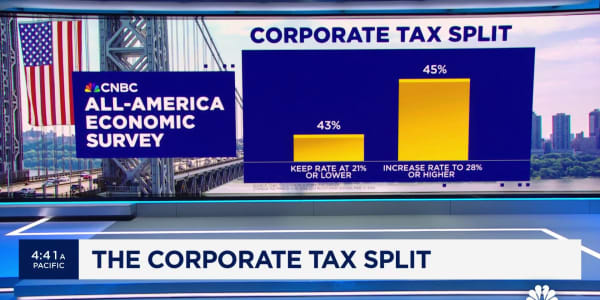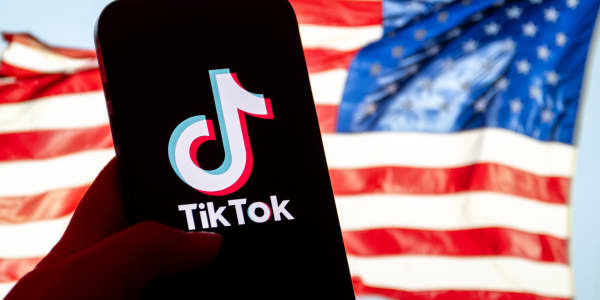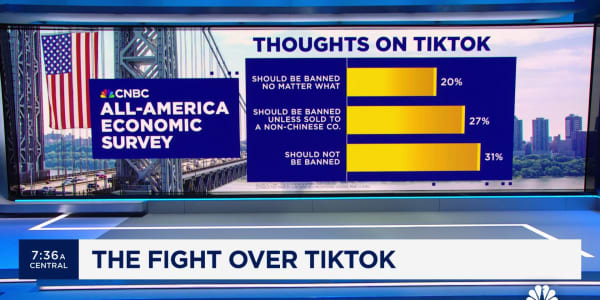
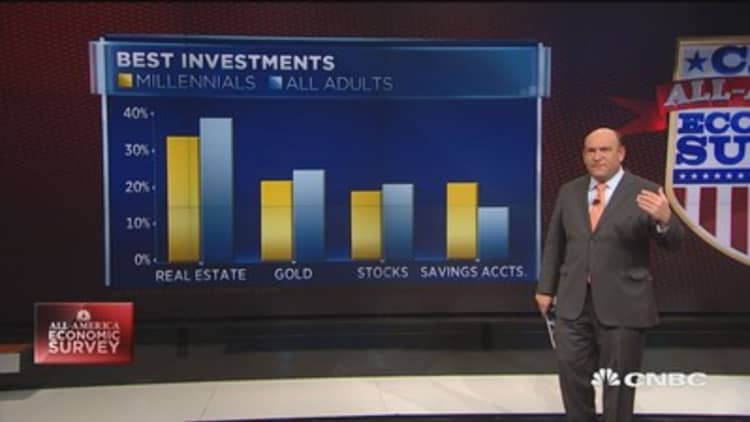
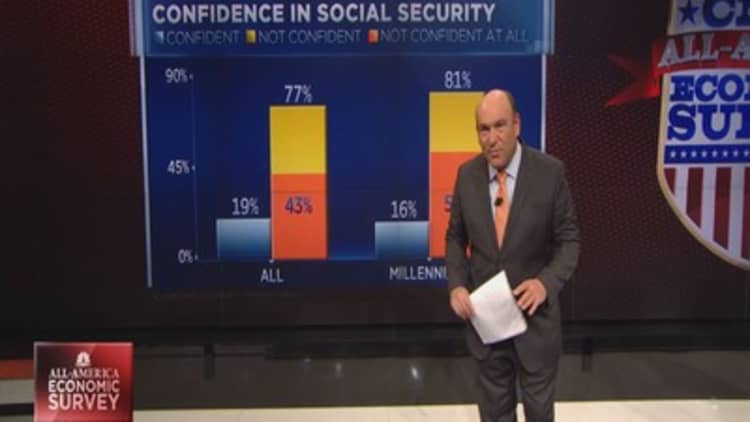
Conventional wisdom holds that the millennial generation, influenced by the 9/11 attacks, burdened with student debt and reared in a world of high-speed mobile devices, is a unique group of young people.
But a special CNBC All-America Economic Survey focusing on millennials finds that while the generation has some unique characteristics, young people today in some critical areas are more similar to the rest of the population than they are different.
Looking at the importance of six traits in a potential employer — ethics, environmental practices, work-life balance, profitability, diversity and reputation for hiring the best and the brightest — millennial preferences are just about the same as the broader population on all six. For example, 18 percent of millennials say work-life balance is the most important trait in a company, compared with 19 percent of the population.

At 25 percent, millennials are somewhat less likely to say "ethical practices" is the most important trait, compared with 29 percent for all adults, but the 4-point difference is within the polls margin of error for employed adults. The poll surveyed 900 Americans nationwide from Oct. 1-4, including an over-sample of 100 additional millennials ages of 18-34. The poll has a margin of error of 3.5 percentage points for all responses and 4.7 points for employed adults, which represents about half the sample.
It shows just slight preferences among millennials for companies with strong environmental sustainability practices and for reputations for "hiring the best and the brightest."
Far from being a generation of disgruntled and whiny youth, millennials appear to be more satisfied with specific aspects of the workplace than the average worker. For example, 87 percent are satisfied with the training and skills development they receive at work, compared with 76 percent of the rest of the population; 76 percent say they are satisfied with their opportunities for promotion and advancement, 10 points higher than the rest of the population.
Millennials are different in some key areas: They are more likely to be concerned about opportunities to advance in their careers and about flexible work hours. They also care less about an employer's retirement benefits. But it's difficult to know if these are the differences of a unique generation, or if they are simply the expected results from a younger generation.
Millennials are more optimistic about the economy than other age groups, but not by very much. They don't rate the current state of the economy any better than the overall population. But their expectations for the economy to improve is marginally brighter. Twenty-two percent of all adults say the economy will get better in the next year, compared with 26 percent of millennials. A third of the public sees the economy getting worse, a bit more downbeat than the 26 percent of millennials who see the economic landscape growing darker. So, net optimism among millennials is zero, compared with minus 10 percent for the public as a whole and minus 17 percent for seniors.
When it comes to investments, millennials also lack much youthful optimism. Just a third thinks this is a good time to invest in stocks, about the same as the overall population, with 46 percent of millennials and all adults saying it's a bad time to invest. Fewer millennials, however, say it's a "very bad time" to invest.
As a group, they are somewhat more risk-averse than the rest of the population. For example, 21 percent chose savings account and cash as their top investment choice, compared with 14 percent for all adults. But millennials chose real estate as their top pick, the same as all adults, which challenges some conventional wisdom that younger generations have less affinity for owning homes. Somewhat fewer millennials, however, chose real estate than all adults.
When asked what they are doing with extra money from lower gas prices, 27 percent of millennials say they are saving more, compared with 19 percent of all adults. Twenty percent say they drive more, compared with 14 percent of all adults.
Millennials are set apart in their belief about the viability of Social Security. Fifty-one percent say they are "not confident at all" in benefits from the government's retirement program, compared with 43 percent of all adults. Thirty percent of millennials say they are just somewhat confident. But just 44 percent of millennials with those doubts say they are planning to save more; 42 percent say they "plan to save more."





